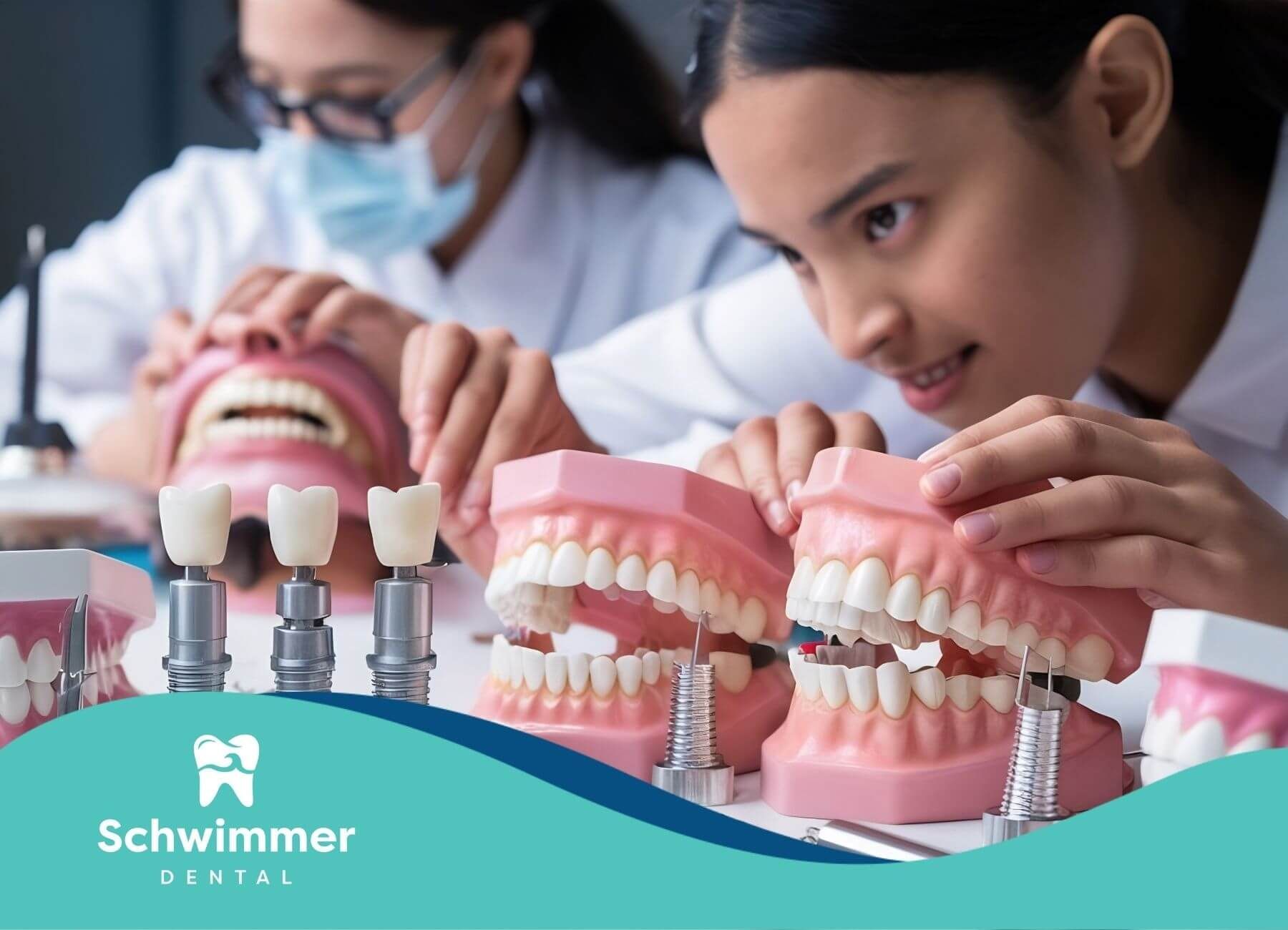Decoding Tooth Enamel: Everything You Need to Know
Tooth enamel, the shining armor of your teeth, stands as the hardest substance found in the human body. This resilient outer layer, though seemingly simple, plays a crucial role in protecting your tooth crown, smile, and overall oral health. This comprehensive guide will uncover the intricacies of tooth enamel, from its composition and function to the threats it faces and how you can best protect it.
Understanding Tooth Enamel
Tooth enamel is the first line of defense for your teeth, shielding the sensitive inner layers from damage. Imagine it as a protective shield, constantly subjected to the wear and tear of chewing, biting, and crunching various foods and drinks. This remarkable substance, despite its thinness, withstands incredible forces and acts as a barrier against physical and chemical attacks.
Beyond its strength, enamel plays a critical role in preventing sensitivity. It insulates the teeth, preventing the discomfort often associated with hot, cold, or sugary treats. Understanding the composition of tooth enamel provides deeper insight into its extraordinary properties.
The Composition of Tooth Enamel
Composed primarily of calcium, phosphate minerals, and phosphorus, tooth enamel is the hardest tissue in the human body. These minerals form tightly packed crystals, creating a remarkably strong and resilient surface. This unique crystalline structure is what gives enamel its exceptional hardness, allowing it to withstand the forces of biting and chewing.
However, despite its strength, enamel is not indestructible. The remaining composition of tooth enamel includes a small percentage of water and proteins. While small, these components are crucial for the overall integrity and function of enamel.
Maintaining the balance of minerals and proteins in enamel is vital for its long-term health and resilience against decay and erosion.
Why Tooth Enamel Is Vital for Dental Health
As the outer layer of your teeth, enamel acts as the primary defense against dental decay and sensitivity. It provides a barrier that protects the underlying dentin and pulp, which contain nerves and blood vessels, from the harmful effects of plaque bacteria and acids.
When this protective layer is compromised, whether through enamel erosion, acidic foods and drinks, or conditions like acid reflux, your teeth become susceptible to a host of dental problems. This vulnerability can lead to cavities, increased sensitivity, severe cases of discoloration, and even discoloration.
Therefore, preserving the integrity of tooth enamel is paramount for maintaining not only a beautiful smile but also optimal oral health.
The Role of Tooth Enamel
The role of tooth enamel extends beyond just structural integrity. It is essential for various aspects of dental health and function, directly impacting your ability to bite, chew, and even speak properly.
Furthermore, intact enamel contributes to the aesthetics of your smile, providing a smooth, shiny surface that reflects light. Its preservation ensures that your teeth remain strong, healthy, and visually appealing.
Protecting Teeth from Decay and Damage
The enamel barrier effectively prevents plaque bacteria, the primary culprits of tooth decay, from penetrating the tooth's inner layers and causing cavities. This protective shield neutralizes acids produced by these bacteria, preserving the healthy minerals and minimizing their erosive impact on the tooth's structure.
However, constant exposure to sugary foods and drinks can overwhelm the enamel's defenses, allowing acids to weaken and erode this protective layer. As enamel weakens, it becomes susceptible to microscopic damage, paving the way for small cavities to form.
These initial signs of decay, if left untreated, can progress into larger cavities, potentially leading to pain, infection, and even tooth loss. Maintaining strong enamel is crucial in preventing these dental problems.
Enamel's Role in Aesthetics and Sensation
Beyond its protective role, tooth enamel is pivotal in maintaining a bright, healthy-looking smile. The smooth, white surface of enamel reflects light, giving teeth their characteristic shine. However, erosion or damage to the enamel can result in discoloration, making teeth appear yellow or stained, which can be a concern for those wanting to avoid unsightly stains.
Additionally, the gum line, where the enamel meets the gums, plays a crucial role in preventing tooth sensitivity. When enamel erodes, it exposes the underlying dentin, which contains microscopic tubules that lead to the tooth's nerve.
This exposure can result in heightened sensitivity to hot, cold, or even sweet stimuli. Therefore, protecting your enamel, such as that found in Pronamel, not only safeguards your oral health but also preserves the natural beauty and comfort of your smile.
Common Threats to Tooth Enamel
Maintaining healthy enamel is a lifelong endeavor, and various factors can compromise its integrity. Understanding these threats is the first step towards protecting your smile and ensuring long-term oral health.
From dietary choices to certain medical conditions, a multitude of factors can contribute to tooth enamel erosion and decay. By recognizing these threats, individuals can make informed choices to minimize their risk and maintain their brilliant smiles.
Dietary Factors That Erode Enamel
Certain foods and drinks can wreak havoc on your enamel, particularly those high in acidity and sugar. These substances interact with the bacteria in your mouth, producing acids that directly attack and erode the tooth surface enamel. Here are some of the top culprits:
- Acidic Foods and Drinks: Citrus fruits and juices, sodas, sports drinks, and even some wines contain high levels of acid.
- Sugar: Sugar feeds the bacteria in your mouth, leading to an increase in acid production and subsequently, greater enamel erosion.
- Fruit Juices: While natural, fruit juices, especially those from citrus fruits, are highly acidic and should be consumed in moderation.
- Limiting your intake of these enamel-eroding foods and drinks is crucial for maintaining strong and healthy teeth. Opt for tooth-friendly alternatives like water, milk, and crunchy fruits and vegetables to minimize acid exposure and promote saliva production, which naturally neutralizes acids and helps protect your enamel.
Conclusion
Tooth enamel is a crucial component of dental health, acting as a protective shield against decay and damage. Understanding its composition and role in aesthetics and sensation highlights its importance. Erosion threats from dietary factors emphasize the need for proper care to prevent dental erosion. While enamel damage can't be fully repaired, preventive measures can slow down deterioration. Regular check-ups and a balanced diet can help maintain enamel integrity. To safeguard your smile, prioritize enamel protection through mindful food choices and consistent oral hygiene practices. If you have concerns about enamel health, consult with a dental professional for personalized guidance.
At Schwimmer Dental, we believe in empowering our patients with knowledge about their oral health. Our expert team in New Jersey can provide valuable insights into the structure and function of tooth enamel, explaining its importance in maintaining a healthy smile. We offer personalized recommendations for protecting your enamel and preventing cavities, ensuring you have the knowledge and tools to maintain optimal oral health.
Frequently Asked Questions
Can Tooth Enamel Be Repaired Once It’s Damaged?
While severely damaged enamel cannot regenerate, early enamel loss can be addressed through remineralization. Your dentist can recommend treatments containing fluoride, which help strengthen enamel by promoting the uptake of calcium and phosphate, the building blocks of healthy enamel. Dental sealants are also an effective preventative measure, particularly for children, providing a protective barrier against further decay and decay in general.
How Can I Tell If My Enamel Is Wearing Down?
Increased tooth sensitivity, particularly to hot, cold, or sweet foods, can be an indicator of enamel loss. You might also notice discoloration, such as yellowing, or a rough texture on the surface of the teeth. If you suspect dental plaque or tooth enamel loss, consulting your dentist for an assessment is recommended.
Are There Foods That Protect Enamel?
Dairy products like milk and cheese are excellent sources of calcium and phosphate, the minerals that strengthen enamel. Additionally, incorporating alkaline foods, such as leafy greens and vegetables, into your diet helps neutralize acids and stimulate saliva production, promoting a healthy oral environment.



